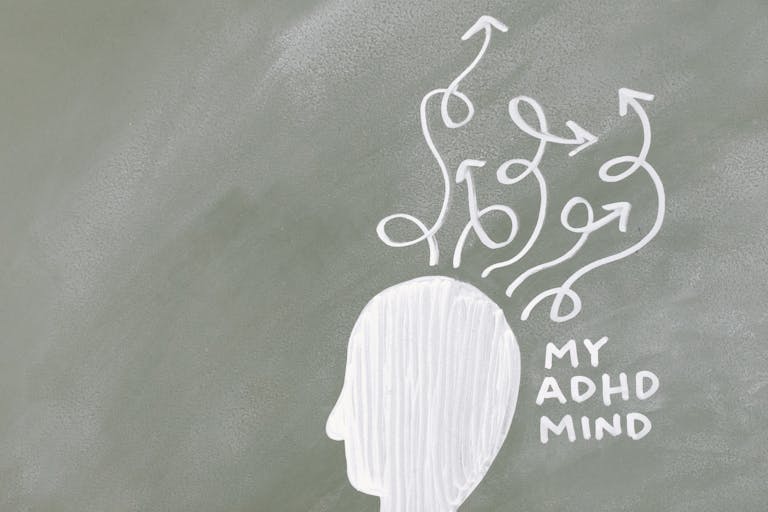Americans Say Stress, Lack of Sleep, and Digital Overload Are Destroying Their Focus, New Survey Finds
In a world full of buzzing notifications and endless to-do lists, staying focused feels harder than ever. A new national survey by The Ohio State University Wexner Medical Center and College of Medicine reveals that many Americans are well aware of what’s draining their attention — and most of them admit they’re struggling to concentrate.
The study, which surveyed 1,008 adults across the United States, found that only one in four people (25%) said they don’t have trouble paying attention. The rest? They’re battling a mix of stress, poor sleep, and constant digital distractions, among other things.
What’s Behind America’s Shrinking Attention Span
According to the report, stress and anxiety take the biggest share of the blame — 43% of respondents said these mental health issues are the main reasons they can’t focus. That’s followed closely by lack of sleep (39%) and overuse of digital devices (35%), which many people say make it nearly impossible to stay engaged for long.
Other factors that Americans cited include:
- Boredom or lack of interest – 31%
- Multitasking – 23%
- Lack of physical activity – 21%
- Poor diet or dehydration – 20%
- Medical conditions like ADHD – 18%
The survey was carried out by SSRS on its Opinion Panel Omnibus platform, between May 2 and May 5, 2025. Of the 1,008 participants, 978 responded online and 30 by phone, all aged 18 or older. The margin of error is ±3.6 percentage points at a 95% confidence level, meaning the data are statistically reliable and represent the broader U.S. adult population.
The findings highlight a key truth: while we often point fingers at technology for making us less focused, the real story is more complicated. Mental and physical well-being, lifestyle habits, and even how we organize our daily routines all play major roles in how well we pay attention.
The Human Cost of Constant Distraction
Psychiatrists at Ohio State say they see this pattern frequently. People show up worried that they “can’t concentrate anymore,” but it often turns out that stress and overthinking are quietly eroding their focus. When the brain is caught in a loop of anxiety or rumination, it struggles to stay present and process information efficiently.
Chronic multitasking makes it worse. When you’re constantly juggling emails, texts, and work tasks, your brain burns out faster — leading to mental fatigue, irritability, and lower motivation. Over time, this exhaustion can spiral into depression or anxiety, making it even harder to concentrate.
This isn’t just a modern problem, but technology has certainly amplified it. With attention constantly pulled in multiple directions — from phones to streaming to notifications — it’s no wonder people report feeling scattered.
The “Take Five” Method to Refocus
To help people reclaim their focus, Dr. Evita Singh, a psychiatrist at Ohio State’s Department of Psychiatry and Behavioral Health, developed a simple strategy called “Take Five.” It’s an easy way to pause and reset attention throughout the day.
Here’s what it stands for:
- T — Take frequent breaks. Short pauses between tasks give the brain a chance to reset.
- A — Actively engage in one task at a time. Multitasking divides attention and lowers productivity.
- K — Keep distractions to a minimum. Silence notifications, clear your space, and focus on what matters.
- E — Eliminate multitasking. Doing one thing well beats doing several things poorly.
- Five — Take five minutes to refocus. Use this time for a quick stretch, walk, or mindfulness exercise.
Dr. Singh recommends trying these small steps first before assuming something is seriously wrong. However, if lack of focus starts to affect daily life or work performance, it’s best to talk to a mental health professional. Underlying causes like anxiety disorders, ADHD, or chronic stress can often be treated effectively with therapy or medical support.
How Attention Works — And Why It’s So Fragile
Attention isn’t just about willpower. It’s a complex brain process involving several regions — including the prefrontal cortex (responsible for decision-making and focus) and the parietal lobe (which helps manage sensory input). When stress hormones like cortisol flood the brain, they interfere with these regions, making it difficult to filter distractions or hold information in working memory.
In today’s overstimulated world, our attention systems are under constant attack. Smartphones, apps, and social media are designed to capture and hold your gaze, often using rewards like likes, pings, or new content to keep you coming back. Over time, this creates what psychologists call “variable reward conditioning” — similar to how slot machines keep gamblers hooked.
This means that even when we try to focus, our brains crave novelty. It’s not that we’ve lost our attention entirely — it’s that the environment keeps hijacking it.
Small Changes That Make a Big Difference
There’s no single fix for improving focus, but combining several lifestyle tweaks can help restore mental clarity:
- Get enough sleep. The brain consolidates memory and focus-related processes during rest. Most adults need 7–9 hours.
- Move your body. Physical activity boosts blood flow to the brain, improving mood and concentration.
- Eat for focus. Foods rich in omega-3 fatty acids, antioxidants, and hydration support healthy cognitive function.
- Practice mindfulness. Just a few minutes of deep breathing or meditation can calm the nervous system and reduce stress.
- Schedule distraction-free time. Designate certain hours for focused work with all notifications off.
- Be kind to yourself. Nobody can stay laser-focused 100% of the time — attention naturally ebbs and flows.
The Bigger Picture
While the survey results shine a light on what Americans believe affects their focus, they also align with scientific evidence linking stress, sleep deprivation, and digital overload to reduced cognitive performance. The average attention span often cited as “eight seconds” isn’t a hard scientific fact, but it does reflect how quickly people tend to get distracted in everyday life.
The takeaway is clear: if you feel your focus slipping, you’re far from alone. The key is to recognize the problem, make small changes, and avoid the trap of trying to do it all at once. By creating space to breathe and refocus — literally “taking five” — you can start retraining your brain to pay attention again.
Research Reference:
Survey identifies top factors Americans blame for declining focus and attention – The Ohio State University Wexner Medical Center (June 30, 2025)






